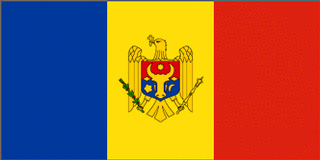LANGUAGE COPS, PARTIES CLASH OVER CAMPAIGN ADS.
Published:
29 September 1999 y., Wednesday
Estoniais language board ordered a Tallinn tram fleet to remove a political advertisement printed in both Estonian and Russian from the exterior of a tram car.The ad, the language board said, violates an election law that requires outside advertising to be printed in Estonian and only Estonian. The ad was placed by the Peopleis Trust, an electoral alliance that comprises several of Estoniais Russian parties. After the tram fleet removed the advertisement, the Peopleis Trust submitted a formal complaint against the language board to the Tallinn Administrative Court. The Estonian language law specifies that "public signs, announcements and advertisements shall be in Estonian." The National Language Board, which is charged with interpreting and enforcing the law, has interpreted this to mean "only in Estonian," excluding the possibility for translations into other languages. Urmas Veikat, assistant to the director of the National Language Board, insists that the wording of the law is quite clear on this point."If the law did allow bilingual signs, then the wording would be ein Estonian and in other languages. As it stands, only Estonian-language signs are allowed. This comes directly from paragraph 6 of the Estonian constitution, which declares Estonian the state language." Representatives of the Peopleis Trust claimed in a public statement Sept.20 that the current interpretation of the law deprives non-Estonian speakers of their right to information. Unlike in parliamentary elections, anyone with an Estonian residence permit has the right to vote in local elections. This includes approximately 300,000 Russian speakers in Estonia. Three Russian electoral unions - groups of parties who present a common list of candidates - are participating in the elections. The issue of Russian-language political advertisements arose during the parliamentary campaign last spring, when the language board ordered the Russian Party in Estonia to remove Russian-language posters. Other printed campaign materials, such as brochures and newspaper ads, may be in any language. The ban on foreign language use also does not include proper names or registered trademarks. The law holds the publisher of the advertisement, in this case the Tallinn tram fleet, responsible for not following the law.
Written by Tricia Cornell
Copying, publishing, announcing any information from the News.lt portal without written permission of News.lt editorial office is prohibited.
The most popular articles
 The fate of blue fin tuna hangs in the balance this week as a complete ban on the trade is debated by MEPs.
more »
The fate of blue fin tuna hangs in the balance this week as a complete ban on the trade is debated by MEPs.
more »
 A $100 million pledge from the Government of Japan has helped to secure the funding base and launch the operational phase of two new climate programs supporting forest management and renewable energy investments in developing countries.
more »
A $100 million pledge from the Government of Japan has helped to secure the funding base and launch the operational phase of two new climate programs supporting forest management and renewable energy investments in developing countries.
more »
 Europeans quite happy with their personal situation, but less satisfied with economic and social climate in their country.
more »
Europeans quite happy with their personal situation, but less satisfied with economic and social climate in their country.
more »
 Spain wishes to “make as much progress as possible” to ensure the EU becomes party to the Council of Europe's Convention for the Protection of Human Rights and Fundamental Freedoms soon, according to the Spanish Minister for Justice, Francisco Caamaño, at today's opening of a seminar on the challenges and possibilities arising from the Treaty of Lisbon coming into force.
more »
Spain wishes to “make as much progress as possible” to ensure the EU becomes party to the Council of Europe's Convention for the Protection of Human Rights and Fundamental Freedoms soon, according to the Spanish Minister for Justice, Francisco Caamaño, at today's opening of a seminar on the challenges and possibilities arising from the Treaty of Lisbon coming into force.
more »
 According to Belarusian tradition, a stork brings good fortune to the village it settles in while in western culture the stork is commonly associated with childbirth.
more »
According to Belarusian tradition, a stork brings good fortune to the village it settles in while in western culture the stork is commonly associated with childbirth.
more »
 The World Bank Board of Directors today approved an additional financing credit to the Republic of Moldova in the amount of US $20 million for the Social Investment Fund II Project.
more »
The World Bank Board of Directors today approved an additional financing credit to the Republic of Moldova in the amount of US $20 million for the Social Investment Fund II Project.
more »
 The Spanish Health and Social Policy Minister, Trinidad Jiménez, and the European Commissioner for Employment, Social Affairs and Equal Opportunities, Vladimir Spidla, addressed the press in Madrid on the launch of the European Year for Combating Poverty and Social Exclusion 2010.
more »
The Spanish Health and Social Policy Minister, Trinidad Jiménez, and the European Commissioner for Employment, Social Affairs and Equal Opportunities, Vladimir Spidla, addressed the press in Madrid on the launch of the European Year for Combating Poverty and Social Exclusion 2010.
more »
 The European Commission and the Spanish Presidency of the EU will tomorrow launch the 2010 European Year for Combating Poverty and Social Exclusion.
more »
The European Commission and the Spanish Presidency of the EU will tomorrow launch the 2010 European Year for Combating Poverty and Social Exclusion.
more »
 Smoking at a restaurant like this one in Spain could soon be a thing of the past. Spanish lawmakers want to stub out the habit in public places like bars and restaurants. But it's an unpopular proposal in a country where around 30 percent of the population smoke.
more »
Smoking at a restaurant like this one in Spain could soon be a thing of the past. Spanish lawmakers want to stub out the habit in public places like bars and restaurants. But it's an unpopular proposal in a country where around 30 percent of the population smoke.
more »
 As President of the European Economic and Social Committee, I would like, on behalf of all the Committee's members, to express my sympathy to the victims of the earthquake in Haiti.
more »
As President of the European Economic and Social Committee, I would like, on behalf of all the Committee's members, to express my sympathy to the victims of the earthquake in Haiti.
more »